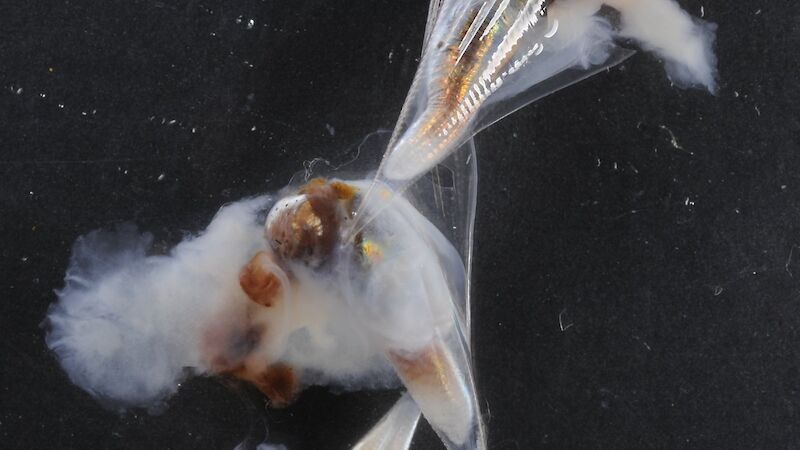Climate change and its impacts on everything from snails to whales, people, ecosystems and rainfall, is up for discussion at the Australia–New Zealand Climate Forum 2010 at the Hotel Grand Chancellor in Hobart this week.
Over the next three days scientists from the Australian Antarctic program will join other Southern Hemisphere scientists to present their research findings on the theme ‘Southern Hemisphere Climate: features, findings, futures’.
As a featured speaker at the forum, Dr Donna Roberts of the Antarctic Climate and Ecosystems Cooperative Research Centre, will discuss the impact of ocean acidification on marine snails, known as ‘pteropods’ or ‘sea butterflies’, in the Southern Ocean. Dr Roberts’ research has shown that some pteropods and other shell-forming planktonic organisms are producing thinner and lighter shells compared to their pre-industrial counterparts.
‘When atmospheric carbon dioxide is absorbed by the Southern Ocean it forms a weak acid when it mixes with water, which reduces the ability of pteropods to form shells,’ Dr Roberts says.
‘As colder water absorbs more carbon dioxide than warmer water, the effects of ocean acidification will be seen first in the Southern Ocean. The impact already observed on shelled pteropods and other marine organisms gives us cause for concern for their survival.’
Australian Antarctic Division biologists, Dr Karen Westwood and Dr Simon Wright, will also present research showing detrimental changes in marine microbial communities as atmospheric carbon dioxide levels increase.
‘Our research indicates that if atmospheric CO2 rises above approximately 780 parts per million — as some models have projected to occur by 2100 — the number and size of certain marine microbes will change, leading to reduced food availability for higher organisms and decreased uptake of CO2 from the atmosphere,’ Dr Westwood says.
Krill feeding on diatoms (a type of algae) growing under higher CO2 concentrations may also experience changes in their development and growth according to Antarctic Division PhD student Cathryn Wynn-Edwards.
‘Preliminary research shows that the nutritional balance of diatoms alters under higher CO2 concentrations (950 parts per million), which may diminish their quality as food for krill,’ Ms Wynn-Edwards says.
Antarctic Division ice core and sea ice scientists will also feature at the conference. Amongst them is Dr Mark Curran, who will discuss how ice core climate records can be used to understand past and present global climate and to improve climate models for future climate projections. He will also discuss the recent finding of a link between increased snowfall in East Antarctica and drought in south-west Western Australia.
Other hot conference topics will include climate communication, climate modelling and climate observation systems. Antarctic Division marine biologist, Dr Steve Nicol, is sure to enliven discussion with his hypothesis that whale poo can act as a fertiliser in the ocean. His research suggests that the recovery of whale populations to pre-whaling numbers could increase the productivity of the ecosystem; which may actually be a help in a warming world.

